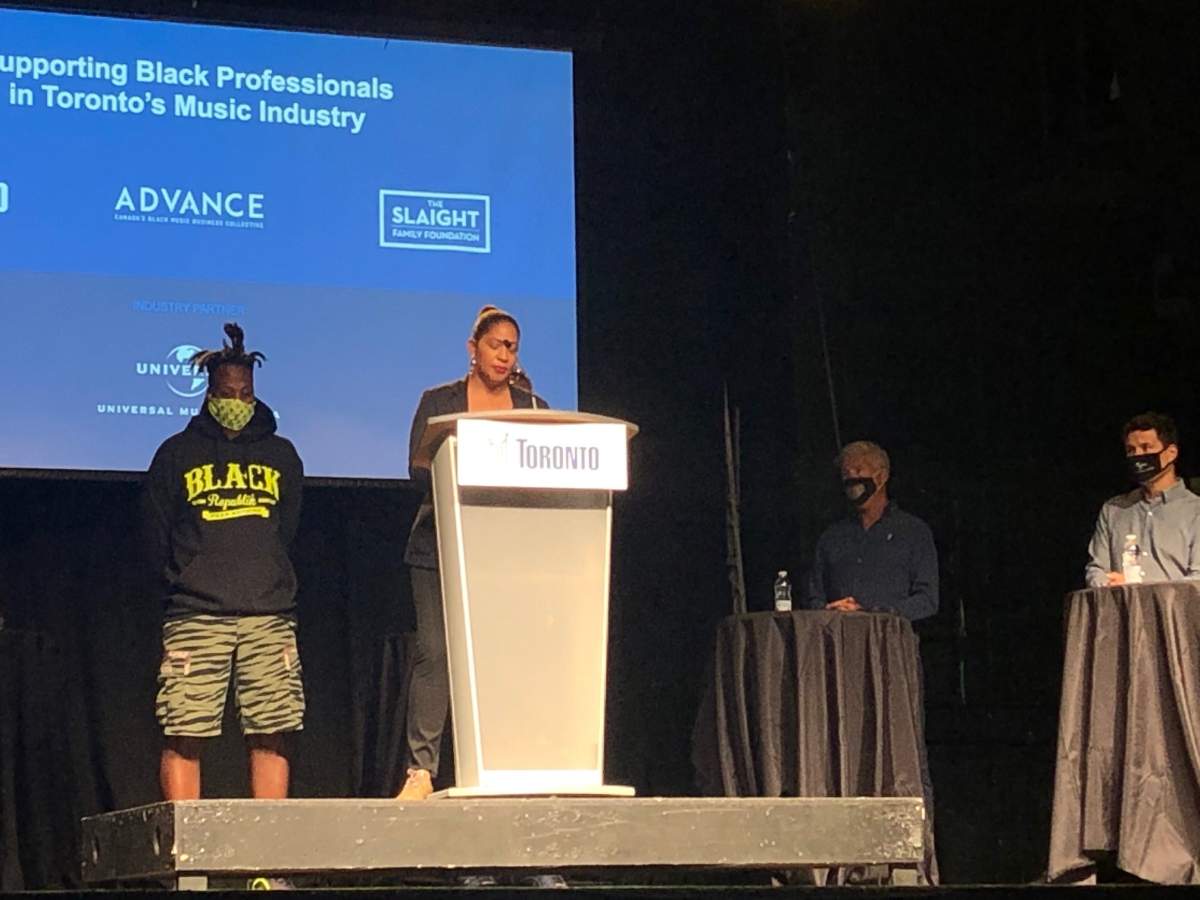Many Black artists may have originated in and around Toronto, but Black representation in industry boardrooms, along with planning and creative positions, is still sorely lacking — a problem the city, along with several partners, aims to remedy.

“A lot of times we reference The Weeknd and Drake and Daniel Caesar and a lot of amazing artists,” said rapper Kardinal Offishall, “but a lot of those artists are all exports and what we need to do, we need to keep that talent in Canada.”
Offishall includes his name on the list of Black artists who had to search for success south of the border, due to systemic racism within the music industry, which he said needs to change. A big part of addressing that, he said, is to see Black culture represented in senior leadership areas.
“The way to do that, is we need to make sure that we have the resources here, we have the infrastructure, and that people pay as much (time) to those up and coming musicians as we do with every other genre,” said Offishall.
Mayor John Tory said Toronto residents have been proud of local Black artists who have gone onto great success in national and international settings.
“We can’t be as proud of the lack of representation of people from those very same Black communities in the management, professional and ownership ranks of the music industry here in Toronto,” said Tory.
- Male pedestrian killed, 4 injured after vehicle crashes into Toronto store
- Police identify 20-year-old victim fatally shot near U of T Scarborough campus
- Ontario police watchdog investigates man’s death after fall from Etobicoke balcony
- Toronto police release image of woman sought in hate-motivated mischief probe
Tory said a new partnership he announced on Monday marks the beginning of initiatives to address the issue by supporting the entry, retention and advancement of Black professionals in the industry.

Get daily National news
The $2-million investment will see the City of Toronto and the Slaight Family Foundation provide funding over the next four years.
Partnering with Advance, a collective for Canada’s Black music business, the goal is to support Black talent development in the local music industry. The hope is to see a shift in the music industry, which has seen major success driven by Black artists, but a lack of Black representation in management and executive roles.
Along with providing internship, mentorship and education opportunities, the program will also look to form an advisory group. It will help analyze and assess racial discrepancies in the music industry. The program will be reviewed in 2022 to see how successful it has been, including how it aligns with the city’s Confronting Anti-Black Racism Action Plan.
“We’ve had great success with a program like this for young, Black people in the film industry,” said Tory, adding that he expected no shortage of partners who will step up with the music initiative.
Already, Universal Music Canada has added its name to that list.
“I want to see as many internships as humanly possible, in all sectors,” said Advance board member Vivian Barclay. “Everything from agencies to the labels and publishers.”
Barclay is a music publishing executive in Toronto, a position she said she was unique to hold in Canada as a Black woman.
“I’m the only Black person in my position in Canada,” she said. “I’ve always said if you want to see another me, you have to make changes very early on.”
In order to achieve that, Barclay said you need to let more people through the front door.
One of the biggest obstacles in Canada she said, is that smaller, community programs don’t have access to the internships recognized by large companies.
“A lot of people come to Black music through an entrepreneurial space, they don’t come necessarily through a third, tertiary institution or college or a formal education,” said Barclay.
That leaves a whole segment of people who want to get into the industry “without a runway to get in,” she said.
“This is the type of thing even as an artist,” said Offishall, “we’ve been fighting for in this country for, you know. at least 20 to 30 years.”
The announcement of the city’s partnership, he said, while only a first step, was still a “tremendous step.”









Comments